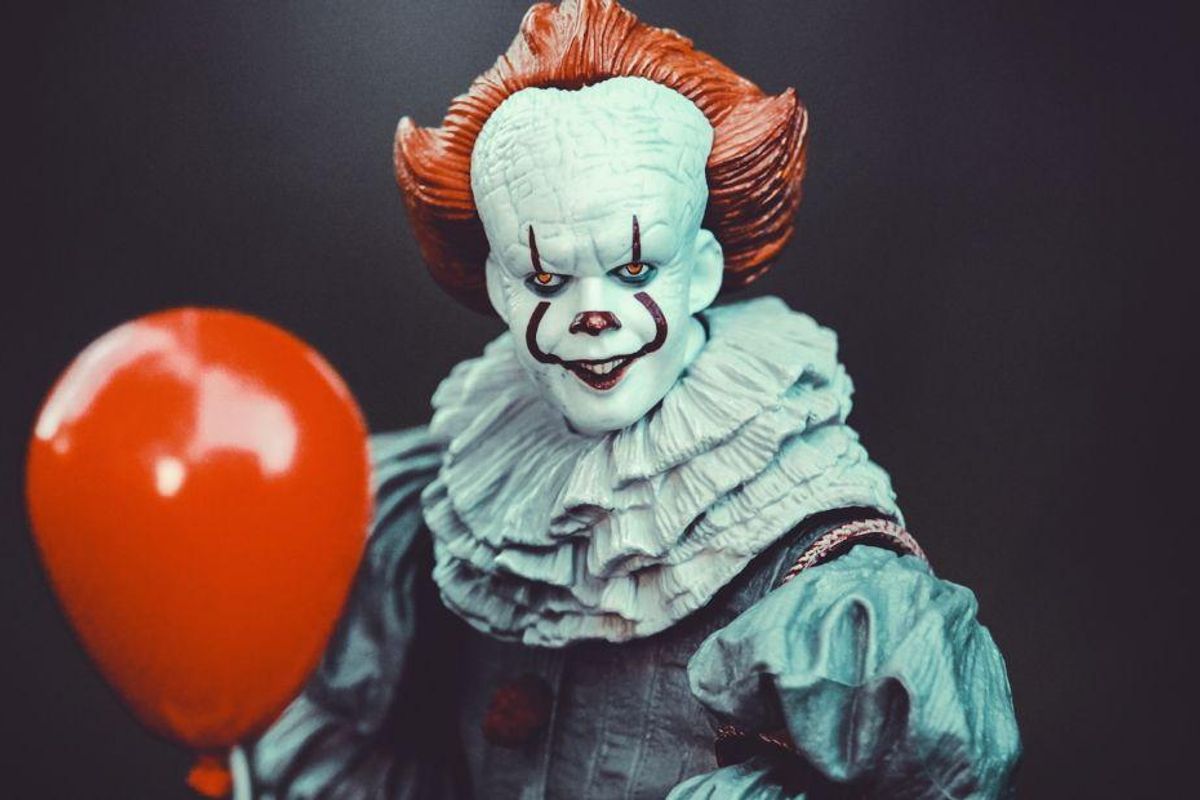How watching horror films can actually help some people manage their anxiety
Seems counterintuitive, doesn't it?

Some people who struggle with anxiety find relief in scary movies.
The idea that watching "The Shining" or "Psycho" or "The Invisible Man" could make you less anxious might sound backward. Anxiety is basically fear, after all—how could making yourself afraid on purpose by watching a horror movie possibly help? Scare yourself to be less scared? Doesn't make sense.
Or does it?
One of the first things my daughter's therapist said when she started phobia treatment was that anxiety thrives on avoidance. The more you try to avoid what scares you, the stronger the anxiety over it becomes.
That concept forms the basis of exposure therapy, which can be an effective way of overcoming clinical fears. Instead of avoiding things that make you anxious, exposure therapy involves approaching what scares you step by step, little by little and processing your fear at each step. Eventually, your tolerance builds up and those fears become greatly diminished.
Watching horror films as an anxiety management tool isn't for everyone, but for those it helps, it can function as a form of exposure therapy. Basically, by putting yourself in a scary situation—but one that isn't truly dangerous and that has a defined time frame—you give yourself a place to practice managing your fear.
Jocelyn McDonnell, a therapist at The Family Institute at Northwestern University, told HuffPost that horror films can be a useful tool for therapists to help clients learn to tolerate and manage the physical sensations of anxiety, such as a racing heart, sweating and heavy breathing.
“A client could see that even though their heart is racing, and their muscles are tight during the movie, they really aren’t in any danger,” McDonnell said. “This realization could help them in future situations in which physical sensations of anxiety are present, because they could remember that even though their bodies are preparing for possible danger, it is likely just a false alarm.”
Kurt Oaklee, MA, MFT, founder of Oaklee Psychotherapy in San Francisco, explained to Healthline how watching horror can help us learn to cope with stress.
“[Horror] can actually teach us how to handle real-world stress better,” Oaklee said. “During a stressful film, we are intentionally exposing ourselves to anxiety producing stimuli. We usually don’t engage in the same unhealthy coping mechanisms that we utilize in real life. We learn how to manage the stress in the moment. This practice can translate to helping us manage everyday stressors and fears.”
(On a related note, a study published in January 2021 found that horror fans exhibited greater resilience during the early days of the COVID-19 pandemic. Perhaps the exposure to stress in scary movies helped prepare them for the horror of a once-in-a-century global viral outbreak.)
There are other theories on why watching horror can provide relief from anxiety for some people, such as the post-adrenaline letdown that leads to relaxation, the sense of control a person has over the scary movie and even the realization that whatever the person is afraid of in real life isn't as terrifying as what's in the film.
Some people, of course, do not find any relief from horror movies and may actually find them more anxiety-producing. While some people with anxiety find horror helpful, people with anxiety are more likely than the general population to respond negatively to horror films, so it's wise to do what feels right for you and discuss the idea with a therapist if you're unsure.
Therapists may not be regularly assigning horror flicks to their clients as direct treatment at this point, but there has been an increase in research and exploration of horror's potentially therapeutic applications in the mental health world. The weekly podcast "Psychoanalysis: A Horror Therapy Podcast," co-hosted by a licensed therapist, looks at mental health through the lens of horror. There's even a full-length documentary on this subject, "Mental Health and Horror: A Documentary," that's currently in production. And there are many books and articles that delve into how horror can help people with certain mental health conditions.
Scary movies may not be for everyone, but they surprisingly might be right for people who already do daily battle with their own fears.
- Emetophobia is easily mistaken for generalized anxiety or anorexia ... ›
- Ryan Reynolds revealed how intense his anxiety can be. Here's ... ›
- Why 'psychological horror' is the ultimate scary movie genre ... ›
- Therapists reveal the five things you should never say to someone with anxiety - and what to say instead - Upworthy ›
- 'Untapped potential' expert shares key to happiness and success - Upworthy ›



 Millennial mom struggles to organize her son's room.Image via Canva/fotostorm
Millennial mom struggles to organize her son's room.Image via Canva/fotostorm Boomer grandparents have a video call with grandkids.Image via Canva/Tima Miroshnichenko
Boomer grandparents have a video call with grandkids.Image via Canva/Tima Miroshnichenko
 We face disagreements in every area of life. Handling them properly is harder than it seems. Photo by
We face disagreements in every area of life. Handling them properly is harder than it seems. Photo by 

 Unique names can be a sign of affluence.
Unique names can be a sign of affluence. Turn Around No GIF by Sesame Street
Turn Around No GIF by Sesame Street  This just in: twins are individuals!
This just in: twins are individuals!  Luke Skywalker GIF by Star Wars
Luke Skywalker GIF by Star Wars  Which one is the Great Scott, though?
Which one is the Great Scott, though?  Slay Go Off GIF by AHS
Slay Go Off GIF by AHS 